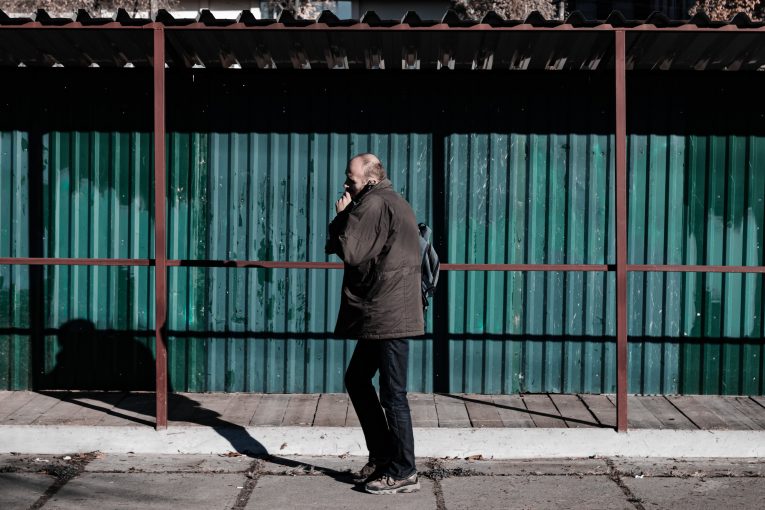
By Robert J Hansen
Woodland, CA – Over ten years ago, a federal court ordered California to reduce its prison population due to overcrowding, which led to several measures put into place resulting in early prison releases such as including early parole consideration for individuals characterized as non-violent second-strikers.
The Department of Corrections and Rehabilitation (CDCR) began evaluating “nonviolent second-strikers” for early parole once they have served 50 percent of their sentence or are within 12 months of having served 50 percent of their sentence in 2015.
Early release of California prison inmates, particularly Prop. 57, has been criticized by most of California’s district attorneys who claim it is responsible for rising crime.
Prop. 57 has allowed nonviolent offenders a parole review after completing their primary sentence and has been granting them since 2016.
Yolo County District Attorney Jeff Reisig has always opposed Prop. 57.
In 2017, Reisig raised concerns about transparency and the length of time prosecutors have to submit statements to the parole board when someone they prosecuted goes before the board.
“The proposed regulations do not allow prosecutors to access an inmate’s central prison file. Without such access, prosecutors cannot address an inmate’s institutional behavior and programming in prison, which are factors considered for early parole,” Reisig said in a 2017 press release.
Yolo County has had about 60 inmates released from prison through either the non-violent second strikers’ early parole consideration or Prop. 57 between 2016 and 2019, according to the Yolo DA’s website.
Yolo County DA’s Office writes letters to the Board with an overview of the inmate’s criminal history, according to the Yolo DA website.
“We focus our opposition efforts on offenders who we believe pose the greatest risk to the community,” the Yolo DA website says.
In 2021, a temporary emergency order granting more good time credits to inmates was blocked by Yolo County District Attorney Jeff Reisig and 40 other DAs who were granted a temporary restraining order.
“Violent crime has been steadily increasing across most of California. Promoting more early releases of prison inmates who have been convicted of heinous crimes or who have violent records, without any confirmation of rehabilitation, is not making anyone safer,” Reisig said at the time.
The CDCR Secretary stated these regulations were necessary to comply with “the direction outlined in the Governor’s Budget Summary” presented May 14, 2020.
“It’s one issue for CDCR to unilaterally shorten sentences which can create a danger to the public and adversely impact crime victims. But to do so without transparency, public input and without a valid and legal rationale, violates core democratic principles and due process. CDCR needs to repeal these regulations and start the process anew in a fair, just and legal manner,” Reisig said.
Most recently critics have pointed to Sacramento mass shooting suspect, Smiley Martin, as a prime example of why they oppose early release.
Reisig and El Dorado County District Attorney Vern Pierson are now arguing that, under Prop. 57, the credits were supposed to be earned for good conduct and rehabilitation and claim everyone is getting the credits, earned or not.
“Over the last several years, thousands of convicted violent prisoners have been released early by State of California prison officials. The process is not at all transparent. The public is not given specific details that explain and justify the early releases,” Reisig said via LinkedIn.

Reisig and Pierson told CBS 13 that they believe CDCR is purposely hiding the calculation for felons like Martin because the agency knows they are not being distributed in the way voters intended.
“That’s really the dirty secret on these enhanced credits that they are awarding to people like Smiley. They didn’t earn early release,” Reisig said.
CBS 13’s investigation revealed that Smiley may indeed have been released too soon but that’s hardly enough to correlate any “rise in crime” in the last couple years to early releases.
Especially considering that early releases have been happening for more than six years, during which the crime rate was in decline until 2020.
Yolo County DA’s office disclosed to CBS 13 that, since 2020, eight out of the 18 felons convicted in Yolo County and later were released early by CDCR under Prop 57, have since reoffended and are now back in the system.
That’s 44 percent, slightly better than the state’s 46 percent rate in 2022.
That’s roughly a 20 percent improvement from the 2012’s 65 percent recidivism rate, according to the CDCR.
According to the California Innocence Project, a 2019 report showed a 62 percent recidivism rate in 2017 through 2018.
Moreover, more time in prison does not improve recidivism rates.
Delbert Williams, an inmate in a California prison, asked what did the prison system do for Smiley or the 66 percent of others released who recidivate?
“Studies have repeatedly shown that long sentences, in and of themselves, do not work. It is like telling a child to go stand in a corner after they misbehave. Behaviorists advise that the parent/caregiver explain the offense, the consequences and offer the child alternatives to the negative behavior,” Williams said.
We must be taught and educated by others. Unfortunately, dysfunctional families, gangs, and other negative experiences influence people in negative ways that many of the rest of us take for granted, according to Williams.
“ … releasing citizens without the cognitive intervention they need will continue to result in bad outcomes,” Williams said.

